Imagine a world where women no longer have to spend hours in smoke-filled kitchens, risking their health and well-being. A world where every household has access to clean cooking fuel, ensuring a healthier environment for all. This vision is becoming a reality through the Ujjwala Yojana, a revolutionary scheme launched by the Government of India.
Ujjwala Yojana aims to empower women across the country by providing them with LPG connections at subsidized rates. Making clean cooking fuel accessible and affordable transforms households. This initiative brings positive changes, especially in the lives of millions of women.
In this blog post, we will delve into the objectives and impact of Ujjwala Yojana on women empowerment. We will also explore its state-wise statistics, success stories, challenges faced during implementation, and much more. So let’s dive in and discover how this remarkable scheme is changing lives one connection at a time!
Overview:
Launched in 2016 under Prime Minister Narendra Modi’s leadership, Ujjwala Yojana is transforming cooking practices, providing clean LPG connections. This initiative targets Below Poverty Line (BPL) households, formerly dependent on hazardous methods like wood or coal for cooking.
The Ujjwala Yojana aims to enhance women’s health by minimizing indoor air pollution. Clean cooking fuel ensures safety and prevents respiratory diseases from prolonged smoke exposure.
This ambitious initiative has witnessed tremendous success since its inception. It has benefited millions of households, particularly those in rural areas where access to clean energy was limited. The scheme’s impact on women empowerment is significant. It frees up their time, enabling pursuit of education or employment opportunities. Ujjwala Yojana empowers women, breaking barriers with its transformative influence.
State-wise statistics reveal significant progress in reaching beneficiaries. Ujjwala Yojana continues its mission for universal coverage through targeted subsidies and awareness campaigns. The government ensures that even remote areas have access to clean cooking fuel.
As we delve further, we’ll explore success stories. These showcase how Ujjwala Yojana transforms lives at an individual level. We will also discuss the challenges faced during implementation and the steps taken by authorities to overcome them effectively.
Stay tuned as we unravel more about this life-changing initiative that is revolutionizing kitchens across India!
Introduction to Ujjwala Yojana:
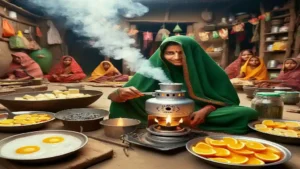
Ujjwala Yojana, also known as the Pradhan Mantri Ujjwala Yojana (PMUY), is a flagship initiative of the Government of India. Launched in 2016, this scheme aims to provide clean cooking fuel to women from below-poverty-line households.
The primary objective of Ujjwala Yojana is to improve the health and well-being of women by replacing traditional cooking methods with cleaner LPG (liquefied petroleum gas) stoves. By doing so, it helps reduce indoor air pollution caused by smoke emitted from burning firewood or cow dung cakes.
Under this scheme, eligible households receive financial assistance for purchasing an LPG connection and stove. The government provides subsidy support to make these connections affordable for economically disadvantaged families.
Since its inception, Ujjwala Yojana has made significant strides in transforming the lives of millions of women across India. It has not only improved their health but also empowered them by reducing their dependence on traditional fuels and giving them access to a cleaner source of energy.
The impact of Ujjwala Yojana can be seen through various statistics and success stories that highlight how it has positively influenced the lives of beneficiaries. The scheme’s expansion and budgetary provisions further demonstrate the government’s commitment towards reaching out to more households in need.
Ujjwala Yojana has proven itself as a game-changer in addressing issues related to household pollution and women empowerment. Through this initiative, countless women have been able to lead healthier lives while taking steps towards economic independence.
As we delve deeper into the implementation updates, case studies, challenges faced, and solutions adopted by Ujjwala Yojana in subsequent sections, you will gain a comprehensive understanding of its significance and far-reaching impacts on society at large.
Objectives of Ujjwala Yojana
Launched in 2016 by the Indian government, Ujjwala Yojana empowers women and provides clean cooking fuel. Its primary goal is to reduce health hazards from indoor air pollution caused by traditional cooking methods like burning firewood or coal. The scheme aims to promote a healthier environment by providing LPG connections to households below the poverty line.
Another objective of the Ujjwala Yojana is to enhance women’s safety. It aims to save them from accidents related to traditional cooking practices. Replacing open fires with LPG cylinders reduces the risk of burns and mishaps, instilling confidence in women’s ability to ensure their family’s well-being.
Moreover, this scheme aims to alleviate the burden on rural women. They often spend extensive hours collecting firewood or biomass fuels for cooking. Access to clean cooking fuel through subsidized LPG connections under Ujjwala Yojana allows them to save time. They can now utilize it more productively towards education or income-generating activities.
Additionally, empowering women economically is another crucial goal of this initiative. Enabling them to explore opportunities like starting small businesses such as food stalls or catering services, clean cooking fuel overcomes previous hindrances from the lack of reliable energy sources.
By addressing these objectives through Ujjwala Yojana, the Indian government aims not only at improving living conditions but also uplifting millions of marginalized households out of poverty and ensuring gender equality in society.
Statistics
The Ujjwala Yojana has made a significant impact in providing clean cooking fuel to households across India. Since its inception, the scheme has benefited millions of families, particularly women in rural areas. Let’s take a closer look at the statistics to understand the magnitude of this initiative.
Number of households benefited: Since its launch in May 2016, more than 8 crore households have been provided with LPG connections under the Ujjwala Yojana. This not only ensures access to clean and efficient cooking fuel but also promotes better health and safety for these families.
State-wise statistics: The implementation of Ujjwala Yojana has been successful across various states in India. Uttar Pradesh ranks first with over 2 crore beneficiaries followed by West Bengal, Bihar, Madhya Pradesh, and Rajasthan.
Impact on women empowerment: One of the key objectives of Ujjwala Yojana is empowering women by enabling them to lead healthier lives. The scheme recognizes that when women no longer have to spend hours collecting firewood or inhaling harmful smoke from traditional cookstoves, they can engage in other productive activities such as entrepreneurship or education.
These statistics highlight the tremendous progress made through Ujjwala Yojana so far. However, there is still much work to be done to ensure every household in India has access to clean cooking fuel. Let’s explore further details about this transformative initiative.
Number of households benefited
Number of households benefited from the Ujjwala Yojana has been a significant indicator of its success. Since its launch in 2016, the scheme has made remarkable progress in providing clean cooking fuel to millions of households across India.
With an aim to reach out to 5 crore BPL (Below Poverty Line) households, the Ujjwala Yojana has already benefitted over 8 crore families so far. This number speaks volumes about the impact it has had on improving the lives of women and their families.
State-wise statistics further highlight the widespread reach of the scheme. Uttar Pradesh tops the list with over 2 crore connections followed by West Bengal, Bihar, Madhya Pradesh, and Rajasthan. The fact that these states have a large rural population underscores how this initiative is transforming lives in remote areas where access to clean cooking fuels was limited or nonexistent before.
The positive impact on women empowerment cannot be overlooked either. By enabling them to switch from traditional cooking methods like firewood and cow dung cakes to LPG cylinders, Ujjwala Yojana has not only reduced health hazards but also given women more time for education or pursuing livelihood opportunities.
These numbers signify that Ujjwala Yojana is making steady progress towards achieving its objectives and ensuring a cleaner and healthier environment for millions of Indian households.
State-wise statistics
State-wise statistics offer detailed insights into the impact and reach of the Ujjwala Yojana in various regions across India. Let’s take a closer look at some key numbers.
As of January 1, 2024, the scheme has released over 10 crore LPG connections, addressing the energy needs of rural households. This achievement is significant, especially for women burdened by traditional cooking methods, providing access to clean fuel.
When delving into state-wise statistics, Uttar Pradesh stands out as a frontrunner, boasting the highest Ujjwala Yojana beneficiaries. Followed by West Bengal, which has also made remarkable progress in extending LPG connections to its rural population.
However, it is important to note that every state has witnessed positive growth and improvement through this scheme. The government’s efforts have reached even remote areas like Bihar, ensuring that more families gain access to clean cooking fuel.
These statistics highlight how Ujjwala Yojana has successfully addressed the energy poverty prevalent among marginalized communities across various states in India. It showcases an inclusive approach towards empowering women and enabling better health outcomes for families.
Impact on women empowerment
The Ujjwala Yojana has had a significant impact on women empowerment in India. By providing clean cooking fuel to households, this scheme has not only improved the health and safety of women but also enhanced their social and economic status.
Access to clean cooking fuel has relieved women from the burden of collecting firewood or using traditional stoves, which often resulted in respiratory diseases and burns. With LPG cylinders provided under the Ujjwala Yojana, women can now cook without inhaling harmful smoke or risking accidents. This improvement in health directly contributes to empowering them physically.
Moreover, this scheme has indirectly empowered women by giving them more time and opportunities for education and income generation. Previously, gathering firewood would consume a significant portion of their day, limiting their ability to engage in other activities. Now with LPG stoves, they have more time for personal growth and financial independence.
Furthermore, access to LPG connections under Ujjwala Yojana has transformed how society perceives women’s roles within households. Traditionally considered as mere homemakers confined within kitchen walls, these women are now seen as equal contributors who have the skills to handle modern appliances like gas stoves confidently.
Through its provision of clean cooking fuel, the Ujjwala Yojana is playing a pivotal role in promoting gender equality and empowering Indian women across all sections of society.
State-wise Statistics of Ujjwala Yojana 1.0: Empowering Households with Clean Cooking Fuel:
The Ujjwala Yojana, since its inception, has made significant strides in providing clean cooking fuel to households across the country. Let’s dive into the state-wise statistics of Ujjwala Scheme 1.0 to get a better understanding of its impact.
In Uttar Pradesh, one of the largest states in India, over 2 crore LPG connections were distributed under the scheme. This massive number showcases the scale and reach of Ujjwala Yojana in empowering women with clean cooking fuel.
Moving down south, Andhra Pradesh witnessed a distribution of around 60 lakh LPG connections through this scheme. The state government’s proactive approach towards implementing Ujjwala Yojana has contributed to its success and positive outcomes for rural households.
Similarly, other states like Bihar and West Bengal have also witnessed substantial progress with approximately 1 crore and 80 lakh LPG connections respectively provided under Ujjwala Scheme 1.0.
These state-wise statistics highlight the wide-ranging impact of Ujjwala Yojana across different regions in India. It is commendable how this initiative is transforming lives by ensuring access to clean energy for cooking purposes.
With such impressive numbers achieved during the first phase itself, it sets an optimistic tone for future expansions and advancements as part of Ujjwala Scheme 2.0!
Ujjwala Yojana Subsidies for Clean Cooking Solutions:
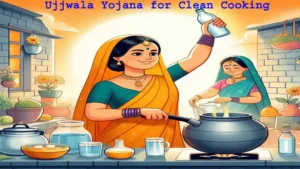
Ujjwala Scheme Subsidy is a crucial aspect of the Ujjwala Yojana, aimed at providing clean cooking fuel to women in rural households. Under this scheme, eligible beneficiaries are provided with LPG connections along with financial assistance for purchasing the necessary equipment.
The subsidy plays a significant role in making clean cooking fuel accessible and affordable for these women. It helps alleviate their financial burden by reducing the cost of LPG cylinders and associated expenses. With the subsidized rates, more women can now switch from traditional fuels like firewood or cow dung to cleaner alternatives.
This subsidy has been instrumental in ensuring that no woman is left behind in accessing clean cooking fuel. It acts as an incentive for women to adopt cleaner energy sources, promoting better health and environment outcomes.
Moreover, by providing subsidies specifically targeted towards women, the Ujjwala Scheme recognizes their contribution to household chores and empowers them further. Women are now able to take charge of their own kitchen needs and contribute actively towards improving their family’s well-being.
Ujjwala Scheme Subsidy has played a pivotal role in expanding access to clean cooking fuel among rural households. By making it financially feasible for women to transition from traditional fuels to LPG, this subsidy promotes empowerment while also addressing health and environmental concerns.
Evolution of Ujjwala Yojana: Empowering Households and Transforming Lives
The Ujjwala Yojana, launched in 2016 by the Government of India, has a rich and impactful history. It was initiated with the aim of providing clean cooking fuel to rural households under the Pradhan Mantri Ujjwala Yojana (PMUY). The scheme aimed to address two critical issues – health hazards faced by women due to traditional cooking methods and reducing air pollution caused by solid fuels.
Since its inception, the Ujjwala Yojana has witnessed immense success and positive outcomes. With an initial target of providing LPG connections to 5 crore households within three years, it surpassed expectations and achieved its goal ahead of schedule.
The implementation process involved identifying eligible beneficiaries through socio-economic caste census data. These beneficiaries were then provided with free LPG connections along with stoves and initial cylinders at subsidized rates. This step proved instrumental in promoting clean energy adoption among rural households.
Success stories from various parts of the country highlight how this initiative has transformed lives for the better. Women who previously spent hours collecting firewood or using inefficient stoves now have access to safer and cleaner cooking options.
To further expand its reach, there have been recent updates regarding an extension of the Ujjwala scheme benefiting an additional 75 lakh consumers across different states. Budgetary provisions have also been made to support this expansion plan.
The journey of Ujjwala Yojana has been remarkable so far; however, challenges still persist in ensuring complete implementation. Steps are being taken regularly to overcome these hurdles and ensure that every household can benefit from this empowering scheme.
Origin and implementation of Ujjwala Yojana
Launched in May 2016, the Ujjwala Yojana is a groundbreaking initiative by the Government of India. It aims to provide clean cooking fuel, with a focus on reducing household air pollution caused by traditional cooking fuels like firewood and kerosene.
Under this scheme, eligible beneficiaries are provided with LPG (liquefied petroleum gas) connections along with a stove. The cost for these initial installations is borne by the government, making it more affordable for rural households.
Since its inception, Ujjwala Yojana has made significant strides in achieving its objectives. Over 10 crore households have benefited from this scheme so far. These numbers speak volumes about the positive impact that this initiative has had on improving access to clean energy sources for rural communities.
The government took various measures to ensure effective implementation of the scheme. One key aspect involved conducting extensive awareness campaigns to reach potential beneficiaries and educate them about the benefits of using LPG as a cleaner alternative.
You may also like to read: From Zero to Hero: How Vedic Mathematics Can Transform Your Number Skills
Oil marketing companies actively forged partnerships to facilitate smooth distribution and manage the supply chain effectively. This helped streamline processes and ensure timely delivery of LPG cylinders to rural areas.
Success stories from beneficiaries across different states have highlighted how Ujjwala Yojana has transformed their lives. Women who previously spent hours collecting firewood or struggled with health issues due to indoor smoke can now focus on other productive activities or pursue education opportunities.
Despite these achievements, there are still challenges that need attention. Some areas lack proper infrastructure or face logistical difficulties in reaching remote locations for cylinder refills or replacements. To address these gaps, steps have been taken such as introducing mobile refill vans and setting up new distributorships in underserved regions.
The commitment towards expanding access to clean cooking fuel continues unabated through budgetary provisions allocated specifically for the Ujjwala Yojana. With ongoing efforts to reach an even larger number of households, the Ujjwala Yojana is expected to have a lasting impact on improving the lives and health of millions of women in rural India.
Success stories and testimonials
Success stories and testimonials are a powerful testament to the impact of Ujjwala Yojana in empowering women and transforming lives. These stories highlight the positive changes that have occurred in households across India, thanks to this revolutionary scheme.
Take the example of Rani Devi from Bihar, who was previously cooking on an open fire using wood or cow dung. This not only posed health hazards but also required hours of laborious effort every day. With the help of Ujjwala Yojana, she now has access to clean cooking fuel, which has improved her overall health and reduced her time spent on cooking.
Another success story is that of Sunita Sharma from Rajasthan. She used to suffer from respiratory problems due to constant exposure to smoke while cooking with traditional fuels. After receiving a gas connection through Ujjwala Yojana, her health significantly improved, allowing her to focus on other aspects of her life.
You may also like to read: Blueprint for Progress: A Detailed Look at the BJP’s Vision for India in their Election Manifesto 2024
These stories are just two examples among thousands that demonstrate how Ujjwala Yojana has positively impacted women’s lives across India. It has not only provided them with cleaner cooking fuel but also empowered them by reducing their workload and improving their overall well-being.
The testimonials from beneficiaries further underline the effectiveness of this scheme. Women express gratitude for being able to cook without inhaling harmful smoke, saving valuable time, and experiencing better health outcomes for themselves and their families.
Ujjwala Yojana’s success stories and testimonials serve as inspiration for others facing similar challenges in rural areas. They provide hope that change is possible even in difficult circumstances when government initiatives like this one come into play.
As more success stories emerge and continue inspiring others, it becomes clear that Ujjwala Yojana is making a significant difference in the lives of countless women across India – truly empowering them with clean cooking fuel!
Implementation Updates:
The Ujjwala Yojana has been making remarkable progress since its inception. With the aim to provide clean cooking fuel to every household, the government has recently extended the scheme’s coverage to an additional 75 lakh consumers. This expansion will help reach more rural areas and empower even more women.
To support this massive scale-up, authorities have allocated adequate funds, ensuring smooth implementation and reaching intended beneficiaries without disruptions.
The extension of Ujjwala Yojana is a testament to its success and impact on rural households. The scheme has not only provided access to clean cooking fuel but also transformed lives by empowering women in these communities.
By providing LPG connections, Ujjwala Yojana has reduced health risks associated with traditional cooking methods such as indoor air pollution and respiratory diseases. It has also saved time for women who no longer need to spend hours collecting firewood or preparing traditional stoves.
These updates highlight the commitment of the government towards ensuring a cleaner and healthier future for all Indian households. Through continuous efforts and improvements, Ujjwala Yojana is bringing about a positive change in countless lives across the country.
Extension of Ujjwala scheme to 75 lakh consumers
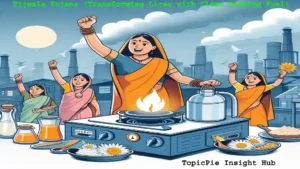
Implementation Updates: The Ujjwala Yojana, launched by the Government of India in 2016, has been making significant strides in empowering women and providing clean cooking fuel to households across the country. In a recent development, the government has announced an extension of the Ujjwala scheme to benefit an additional 75 lakh consumers.
This expansion is a testament to the success and impact of the program so far. The government aims to further improve living conditions and promote sustainable development by extending the reach to more households, especially those in rural areas with previously limited access to clean cooking fuel.
To facilitate this expansion, authorities have allocated adequate funds for providing LPG connections and subsidizing refills for eligible beneficiaries. The aim is not only to provide access but also ensure affordability through subsidies.
With this move, millions of families will be able to reap the benefits of using clean cooking fuel instead of traditional methods such as firewood or cow dung cakes. This shift not only improves indoor air quality but also reduces health hazards associated with smoke inhalation.
You may also like to read: How the White Revolution Transformed India into a Global Milk Powerhouse?
The extension of the Ujjwala scheme highlights the commitment of the government towards inclusive growth and ensuring that no one is left behind on their journey towards progress. It brings us closer to achieving energy justice for all and creating a cleaner environment for future generations.
The stories from beneficiaries who have already availed benefits under this scheme showcase how it has transformed lives by improving health outcomes for women and children while saving time spent on collecting firewood. The positive impacts are evident at both individual and community levels.
However, despite these achievements, there are still challenges that need attention. Some remote areas face logistical hurdles in delivering LPG cylinders regularly due to difficult terrain or lack of connectivity. Steps are being taken by authorities at various levels – from central governments down through local administrations -to address these challenges and ensure a smooth implementation of the scheme.
The extension of the Ujjwala scheme to 75 lakh more consumers is a significant step towards achieving universal access to clean cooking fuel. It will not only improve the lives of millions of families but also contribute towards the larger goals of sustainable development and a healthier, cleaner world.
Budgetary provisions for the expansion
The Ujjwala Yojana has been an incredible success in providing clean cooking fuel to millions of households across India. Recognizing its impact and potential, the government has recently announced a significant budgetary provision to expand the scheme further.
With a focus on reaching out to more rural households, the government has allocated substantial funds towards extending the benefits of Ujjwala Yojana to an additional 75 lakh consumers. This expansion aims to bridge the gap between urban and rural areas by ensuring access to clean cooking fuel for every household in need.
To support this ambitious plan, adequate financial resources have been set aside by the government. The increased budgetary provisions will enable effective implementation of the scheme and ensure that it reaches those who are yet to benefit from it.
Moreover, these provisions reflect the government’s commitment towards uplifting marginalized sections of society and empowering women in particular. By investing in cleaner cooking solutions, not only is their health being safeguarded but also their economic prospects are being enhanced.
Expanding Ujjwala Yojana aligns with India’s larger goal of sustainable development and reducing carbon emissions. As more households switch from traditional fuels like wood or coal to LPG cylinders under this scheme, there will be a significant reduction in indoor air pollution and its associated health hazards.
Through dedicated budget allocations for expanding Ujjwala Yojana, the Indian government is taking proactive steps towards achieving universal access to clean cooking fuel. This move not only addresses socio-economic disparities but also contributes towards environmental sustainability. By prioritizing such initiatives, we can create a healthier future for all while empowering women with cleaner energy options!
Case Studies:
The Ujjwala Yojana has transformed the lives of countless women across India, providing them with access to clean cooking fuel and empowering them in the process. Let’s take a look at some inspiring case studies that highlight the positive impact of this scheme.
In a village in Uttar Pradesh, Radha Devi was struggling to cook meals for her family using traditional cooking methods. The smoke from the stove caused respiratory issues for her and her children. However, after being enrolled in the Ujjwala Yojana, she received an LPG connection and a gas stove. This not only improved their health but also saved time and effort spent collecting firewood.
Similarly, in a remote village in Rajasthan, Savita Bai had been dependent on wood as fuel for cooking. With limited resources available nearby, she would often have to travel long distances to gather firewood. But thanks to Ujjwala Yojana, Savita now enjoys the convenience of clean cooking fuel right at her doorstep.
These are merely two instances, showcasing the success of Ujjwala Yojana. It has positively impacted rural households, reducing indoor pollution and enhancing overall well-being.
By providing free LPG connections to millions of women in India through targeted subsidies, this initiative addresses health concerns. It also fosters economic empowerment, enabling women to reallocate time to productive activities like education or income-generation opportunities.
The transformative effect of Ujjwala Yojana goes beyond individual households. It uplifts entire communities, creating healthier environments and promoting sustainable development.
These case studies show how clean cooking fuel access empowers women economically and enhances their overall quality of life. These serve as reminders that thoughtful, purposeful changes, no matter how small, can significantly impact lives.
Stories of women empowered by Ujjwala Yojana
The Ujjwala Yojana has not only provided access to clean cooking fuel but has also empowered countless women across the country. Through this initiative, many women have been able to break free from the shackles of traditional cooking methods and embrace a healthier and more convenient way of life.
One such inspiring story is that of Rani Devi from Bihar. Prior to being enrolled in the Ujjwala scheme, Rani used to cook on a traditional chulha using firewood or cow dung cakes. This not only posed health hazards but also required her to spend long hours collecting firewood.
After receiving an LPG connection through Ujjwala Yojana, Rani’s life took a transformative turn. She no longer had to venture into forests for firewood or breathe in harmful smoke while cooking. Instead, she could now prepare meals quickly and efficiently with the click of a gas stove knob.
Similarly, in Rajasthan, Suman Devi found herself burdened by daily struggles until she became a beneficiary of the Ujjwala scheme. With her new LPG connection, Suman saved precious time. She could now focus on productive activities like tailoring clothes and stitching quilts.
These are just two examples among thousands. Women have firsthand experienced the positive impact of Ujjwala Yojana, improving health and empowering them economically and socially.
The stories of empowered women remind us that Ujjwala Yojana can bring significant change at individual and societal levels. Continued support for such programs is essential, creating equal opportunities for all members of society.
Transformational impact on rural households
The Ujjwala Yojana has brought about a significant transformation in rural households across the country. By providing access to clean cooking fuel, this scheme has not only improved the health and well-being of families but also empowered women in many ways.
One of the most notable impacts of the Ujjwala Yojana is seen in the reduction of indoor air pollution. Traditional cooking methods such as burning wood or cow dung cakes release harmful smoke and pollutants that can cause respiratory diseases. With LPG connections provided under this scheme, rural households now have a cleaner and safer environment for cooking.
Moreover, by saving time spent on gathering firewood and preparing traditional stoves, women are able to engage in other productive activities. This has opened up new opportunities for them to pursue education, gain employment, or start their own businesses. The financial burden associated with purchasing expensive fuel alternatives like kerosene or diesel is also alleviated through subsidized LPG cylinders.
Additionally, access to clean cooking fuel has enhanced convenience for rural households. Cooking can now be done quickly and efficiently without having to rely on scarce resources like firewood or charcoal. This not only saves time but also increases productivity within these households.
Furthermore, cleaner cooking practices have had positive environmental effects by reducing deforestation caused by excessive use of wood as fuel. The shift towards LPG as a primary source of energy promotes sustainable living and conservation efforts in rural areas.
The Ujjwala Yojana has brought about a transformative change in rural households by providing clean cooking fuel options. Beyond improving health outcomes and reducing environmental impact, it has empowered women economically and socially while enhancing overall household productivity.
Challenges and Solutions:
The Ujjwala Yojana has undoubtedly been a game-changer in providing clean cooking fuel to millions of households across India. However, like any ambitious program, it has faced its fair share of challenges along the way. One of the main challenges is the identification and enrollment process. With limited resources and infrastructure in rural areas, reaching out to eligible beneficiaries can be a daunting task.
Another challenge is ensuring affordability for families below the poverty line. While the initial cost of acquiring an LPG connection under the scheme is heavily subsidized, ongoing expenses such as refills can still pose a financial burden for some households. This calls for innovative solutions to make LPG refills more affordable or explore alternative options like biogas.
Furthermore, there have been instances where women who received LPG connections were unable to use them due to lack of knowledge or cultural barriers. Illiteracy and traditional cooking practices have hindered their adoption of clean cooking fuels. To address this issue, awareness campaigns and training programs are being conducted to educate women about safe usage techniques.
In terms of infrastructure, availability and accessibility remain major concerns in remote areas. Some regions still lack sufficient distribution centers or delivery networks, making it difficult for beneficiaries to access cylinders conveniently. To overcome this challenge, efforts are underway to expand existing distribution networks and establish new ones where needed.
Sustainability remains an ongoing concern for maintaining regular supply chains and preventing black marketing or diversion of subsidized cylinders for commercial purposes. The government has implemented measures such as digitizing records and introducing online booking systems to enhance transparency and accountability.
Despite these challenges, the government actively commits to overcoming them through continuous monitoring and evaluation processes. It seeks feedback from beneficiaries for potential improvements at both policy-making levels and grassroots implementation stages.
Remaining gaps in implementation
Despite the significant impact and success of the Ujjwala Yojana, addressing gaps in its effective implementation remains crucial. Identifying and including all eligible households is a major challenge. Efforts to reach rural areas and remote communities have been made, but pockets lacking awareness about the scheme still exist.
Another challenge lies in ensuring proper access to LPG refills. Many beneficiaries face difficulties in obtaining timely refills due to limited distribution centers or logistical issues. This can lead to a situation where families revert back to using traditional cooking fuels, undermining the objective of providing clean fuel alternatives.
Furthermore, affordability remains a concern for many households. Although the initial cost of connection has been subsidized, recurring expenses such as purchasing LPG cylinders and refills can be burdensome for low-income families.
To overcome these challenges, steps have been taken by the government. Awareness campaigns have been intensified through various mediums such as television advertisements, radio programs, and community mobilization activities. Efforts are also being made to increase accessibility by opening more distribution centers across rural areas.
In addition, financial assistance schemes have been introduced to ease affordability concerns. The Pradhan Mantri Ujjwala Yojana BIS (Beneficiary Identification System) offers interest-free loans for purchasing stoves and first-time gas connections.
While these measures are commendable, continuous monitoring and evaluation are crucial. Identifying gaps or issues is essential for prompt addressing in the implementation process.
The Ujjwala Yojana has undeniably created positive change, empowering millions of lives by providing clean cooking fuel options to women. Yet, it’s crucial to persist in enhancing implementation strategies, ensuring every eligible household reaps the benefits of this transformative initiative.
Steps taken to overcome challenges
Several steps have been taken to ensure the smooth implementation and success of the Ujjwala Yojana. These measures address challenges that have arisen along the way. One of the main challenges faced was identifying eligible beneficiaries in remote areas. To tackle this, the government introduced a door-to-door survey to identify households without access to clean cooking fuel.
Another challenge was ensuring availability and accessibility of LPG cylinders in rural areas. To overcome this, the government strengthened distribution networks by appointing more LPG distributors in remote locations. Additionally, it developed mobile applications to facilitate easy booking and tracking of gas cylinders.
Awareness campaigns played a crucial role in overcoming another challenge – changing traditional cooking practices. Women were educated about the health hazards associated with traditional fuels like wood and charcoal, as well as trained on how to use LPG stoves safely.
Financial barriers were addressed through subsidies provided under Ujjwala Yojana. The scheme offers financial assistance for purchasing LPG connections and initial refill cylinders at affordable prices.
To enhance efficiency and transparency, the government utilized digital platforms like the PMUY portal and PAHAL scheme for online registration, subsidy transfer, and monitoring.
These steps have helped bridge gaps in implementation by tackling various challenges head-on. As a result, Ujjwala Yojana has made significant progress in empowering women with clean cooking fuel across India’s rural landscape.
Conclusion:
The Ujjwala Yojana has undeniably made a significant impact on empowering women with clean cooking fuel. This flagship scheme launched by the Indian government has successfully provided LPG connections to millions of households across the country.
Through this initiative, numerous families moved away from harmful fuels like wood and coal. This improved their health and well-being significantly. The scheme facilitated socio-economic changes, enabling women to participate in income-generating activities. They no longer spent hours collecting firewood or cooking in smoky kitchens.
Furthermore, the Ujjwala Yojana has enhanced access to clean cooking fuel. It has also fostered entrepreneurship and skill development opportunities for many women. Under the Ujjwala Yojana, many women have become LPG distributors. This boosts their financial independence, actively contributing to expanding LPG coverage across regions.
While challenges persist, efforts are underway to address gaps in the scheme’s implementation at all levels. It’s reassuring to witness proactive steps in bridging these crucial gaps. Continuous monitoring and evaluation will ensure making necessary improvements along the way.
It is evident that Ujjwala Yojana has transformed lives by providing cleaner cooking options and empowering women across India. It serves as a shining example of how targeted government interventions can bring about positive change in society.
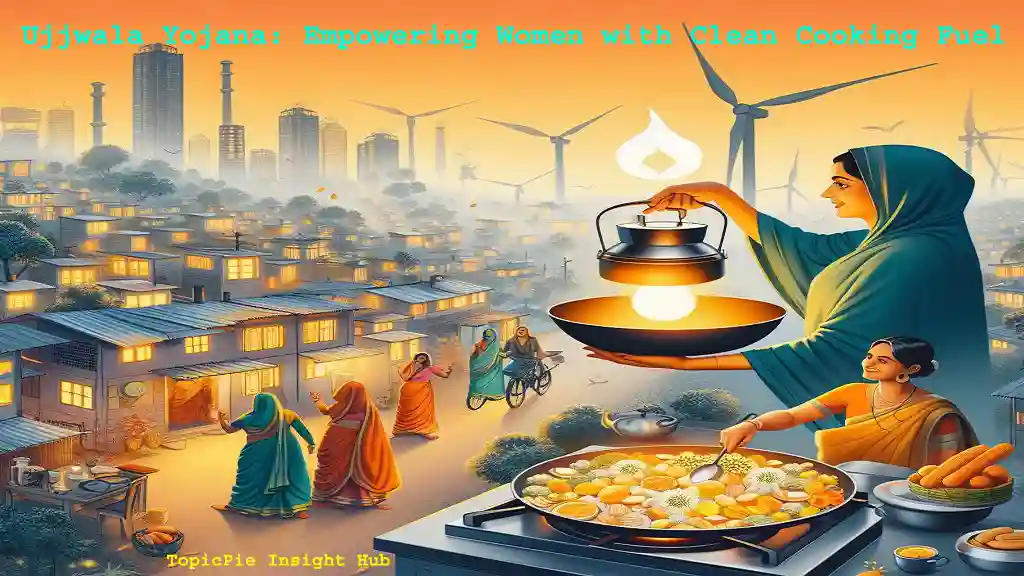


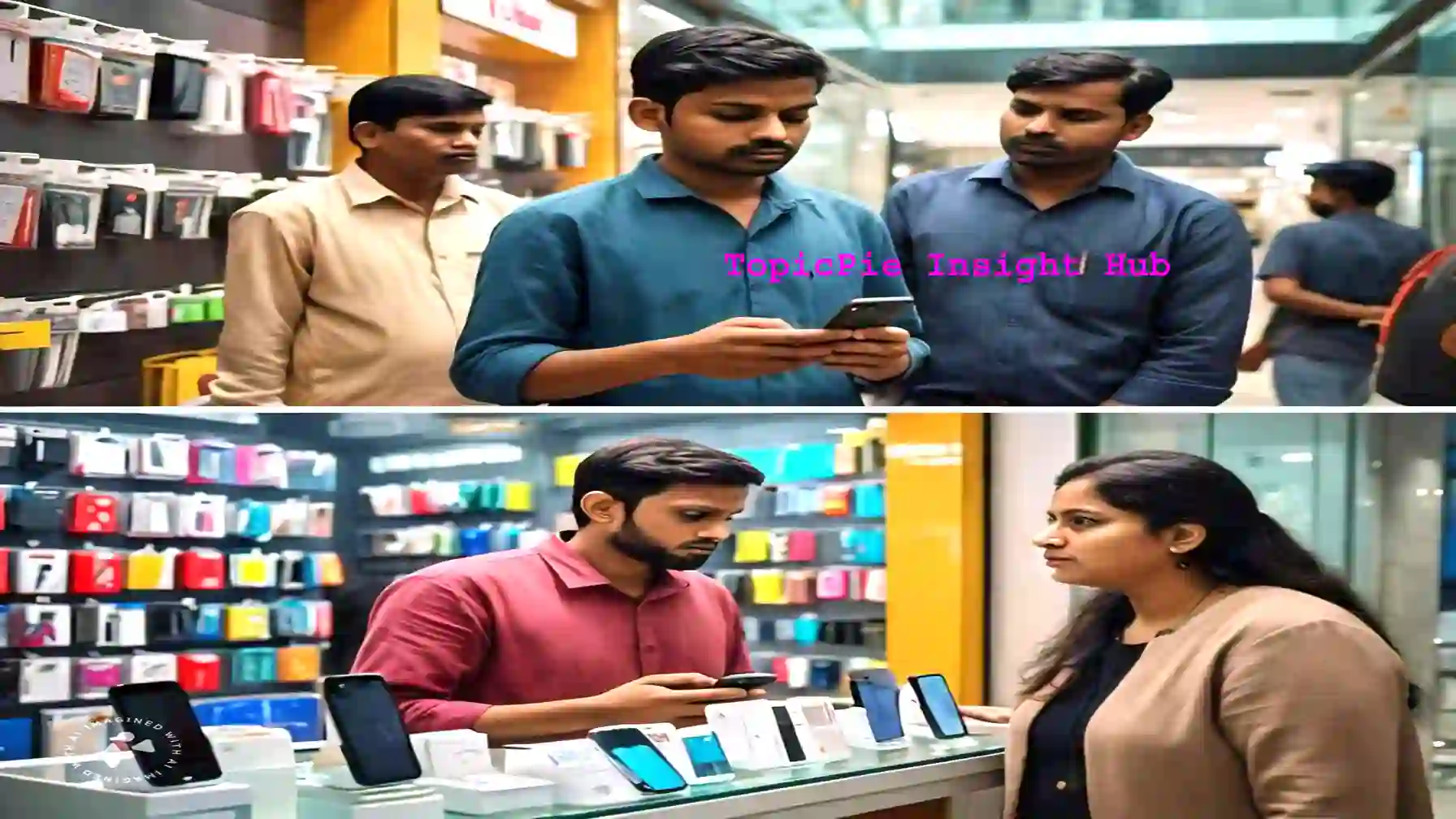



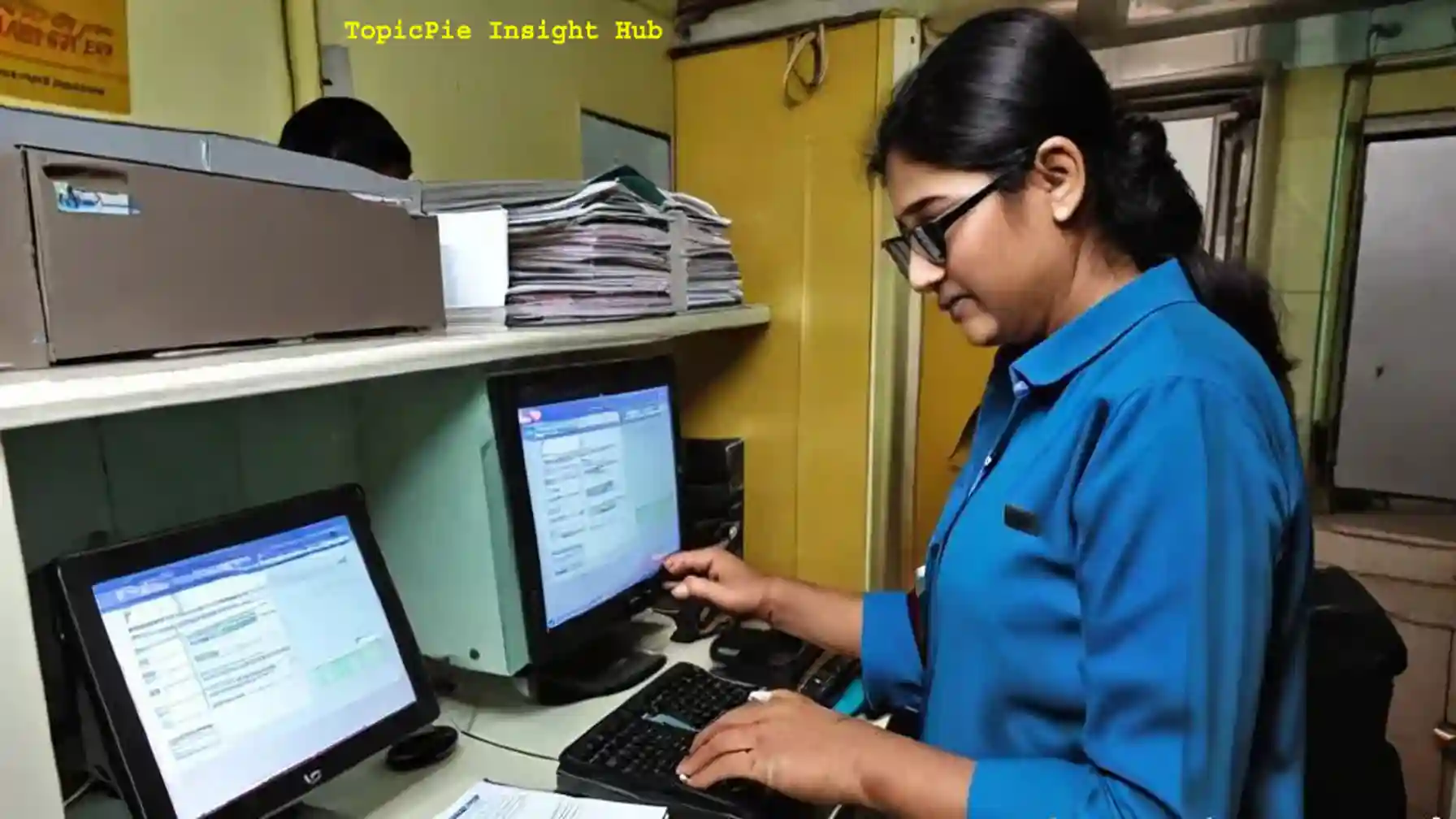
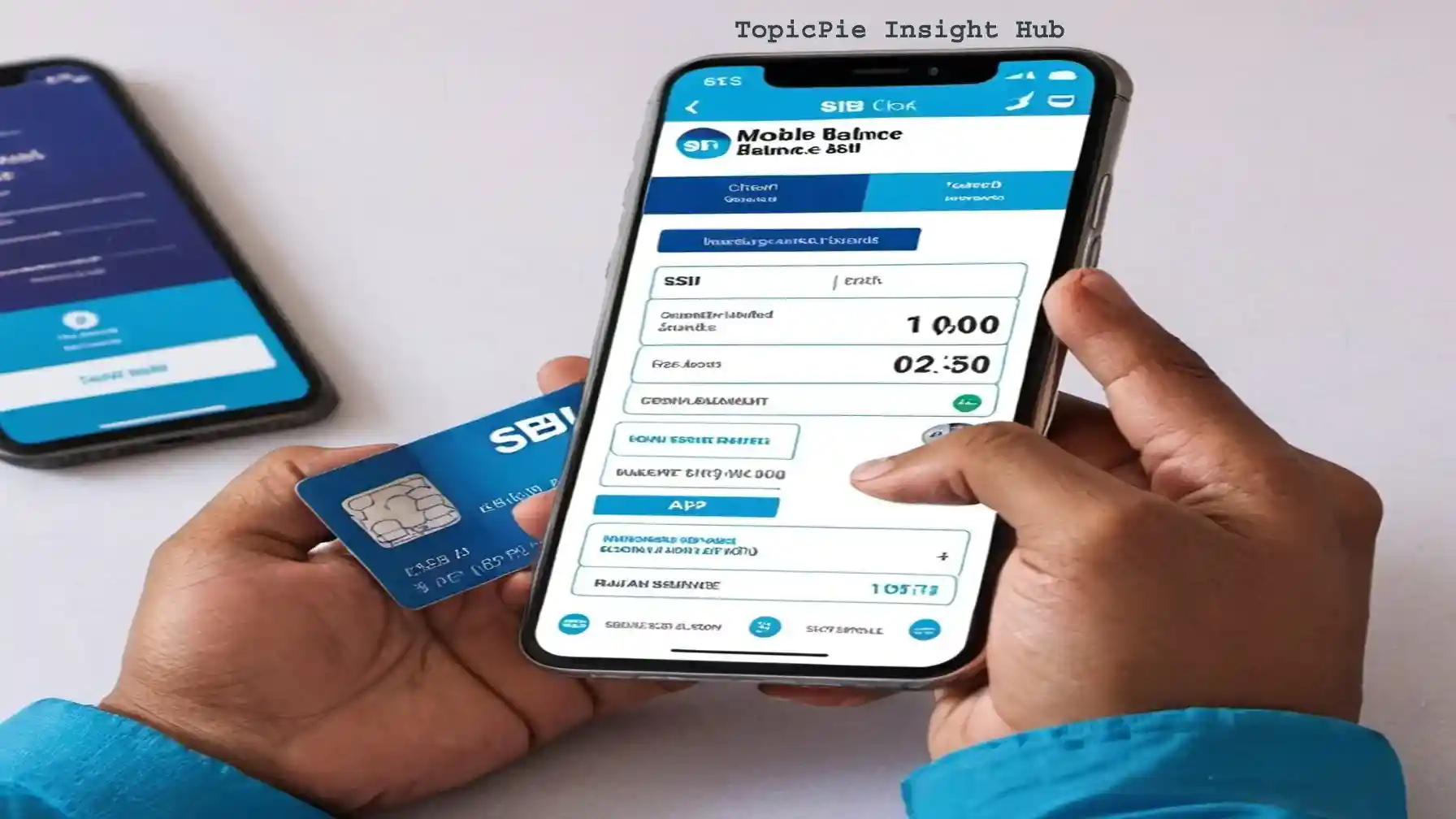
Attractive section of content I just stumbled upon your blog and in accession capital to assert that I get actually enjoyed account your blog posts Anyway I will be subscribing to your augment and even I achievement you access consistently fast